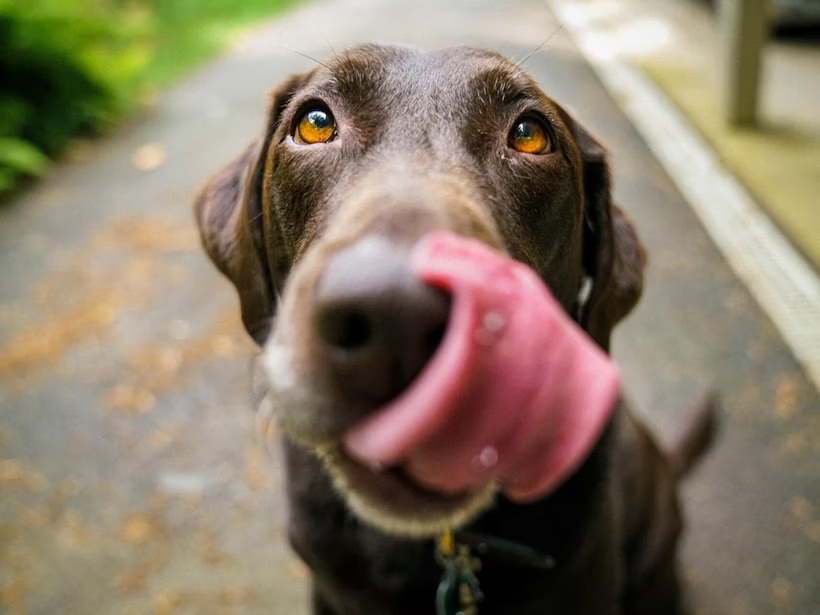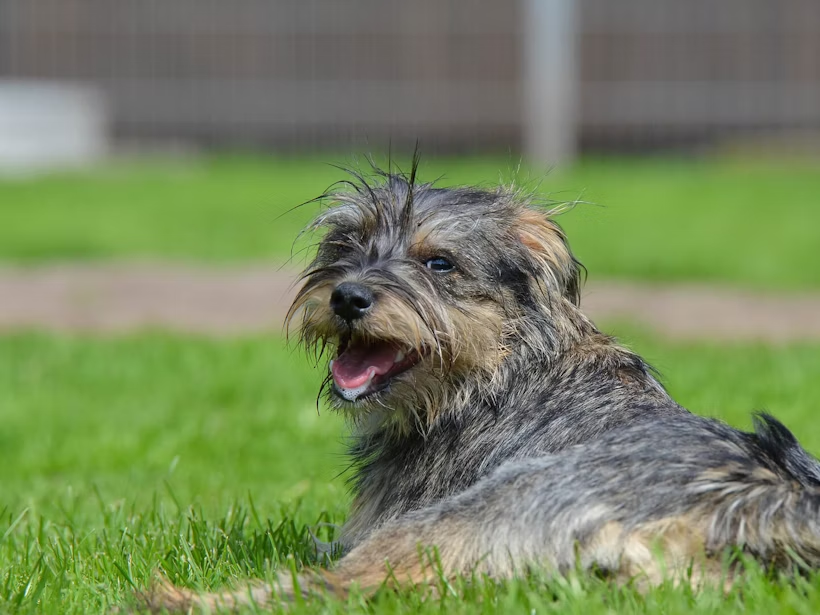Does your dog scarf down dinner and then look at you like they expect another helping (or three)? Are they always on the hunt for snacks? Do they treat every morsel of food as though they haven’t eaten in ages?
If so, you may have a food-obsessed dog. In this post, you’ll find out why some pups get so fixated on eating and what it means for their care.
Did you know? In attempts to feel full, food-obsessed dogs may even sample non-edible items, such as rocks or garbage. This behavior is called “pica.” (Other causes of pica include boredom, stress, and separation anxiety. But pica can also result from health problems. Consult your veterinarian if you are concerned about pica in your pup.)

Common causes of food-obsession in dogs
Several factors can affect your pup’s relationship with food. Sudden variances in appetite are sometimes due to:
- Environmental changes. Did you add a new pet or person to your pack? Move houses recently? Anything that disrupts a dog’s routine can make them feel stressed, insecure, and/or anxious. And some dogs respond by obsessing over resources (i.e., food).
- Health disorders. Diabetes mellitus, intestinal worms, and other health conditions prevent dogs from properly absorbing nutrients from food—causing them to essentially starve despite eating regularly. They often try to compensate by eating more and may show signs of nutrient deficiencies, such as a lackluster coat or inexplicable weight loss.
- Medications. Steroids and other drugs are known to increase appetite in dogs as a side effect.
- Age. Some dogs just seem to get hungrier as they get older. This may be due to age-related physiological changes that reduce their ability to properly absorb nutrients or digest food.
If your pup has always had a voracious appetite, their genes—or a mutation of the pro-opiomelanocortin (POMC) gene, to be precise—might actually be to blame. Normally, the gene regulates appetite by sending a signal to the brain once a dog has eaten enough. But the mutated POMC gene doesn’t appear to send that message. So, affected dogs still feel hungry, even after a big meal.
Did you know? The POMC gene mutation is an autosomal dominant disorder. That means a dog needs to inherit only one copy of the variant to develop the condition. But two copies may increase its severity.
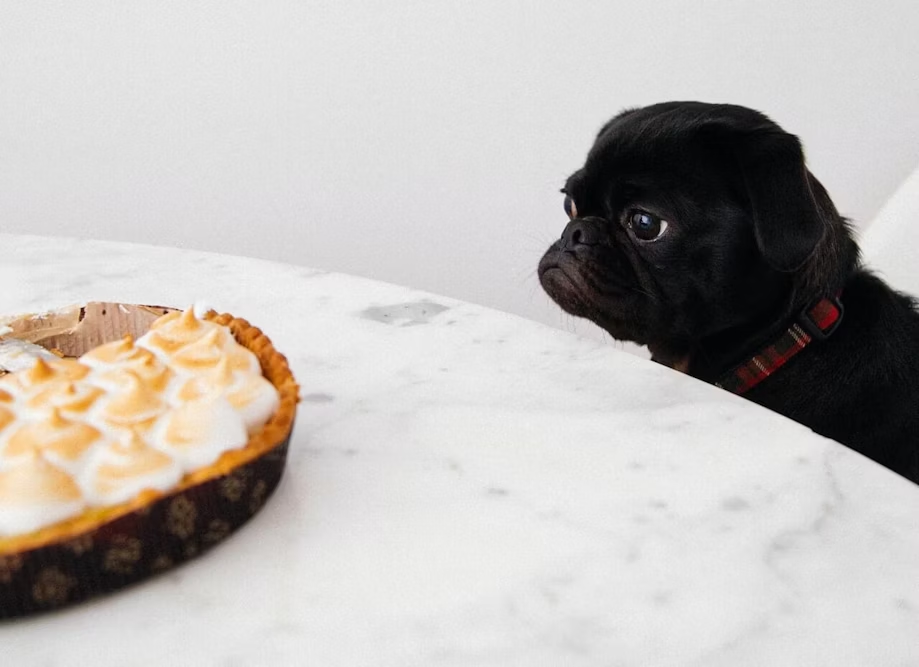
Which dog breeds are the most food-obsessed?
Labrador Retrievers have earned quite a reputation for being particularly ravenous. Turns out, there’s a reason for it.
According to the study that discovered the POMC gene mutation, about one in five Labrador Retrievers carry it. (That rate increases to roughly three in five when looking specifically at Labs selected to be assistance dogs—likely because their insatiable appetite makes them easiest to train.)
Did you know? Food obsession can sometimes lead to food aggression. If your pup starts to seem possessive of food, use these techniques to address the issue early.
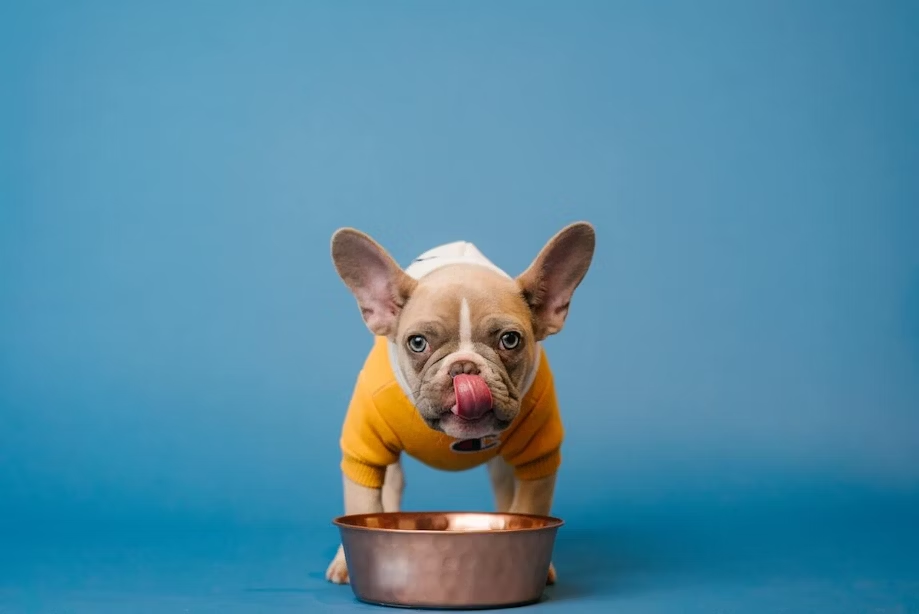
Though not known to be subject to the POMC variant, several other breeds are (in)famous for their affinity for eating. These include:
Of course, all dogs view food as a prize to an extent. Some people think this is because our modern pups descend from wolves, and the mindset of food scarcity may simply be programmed into their genetic memory.
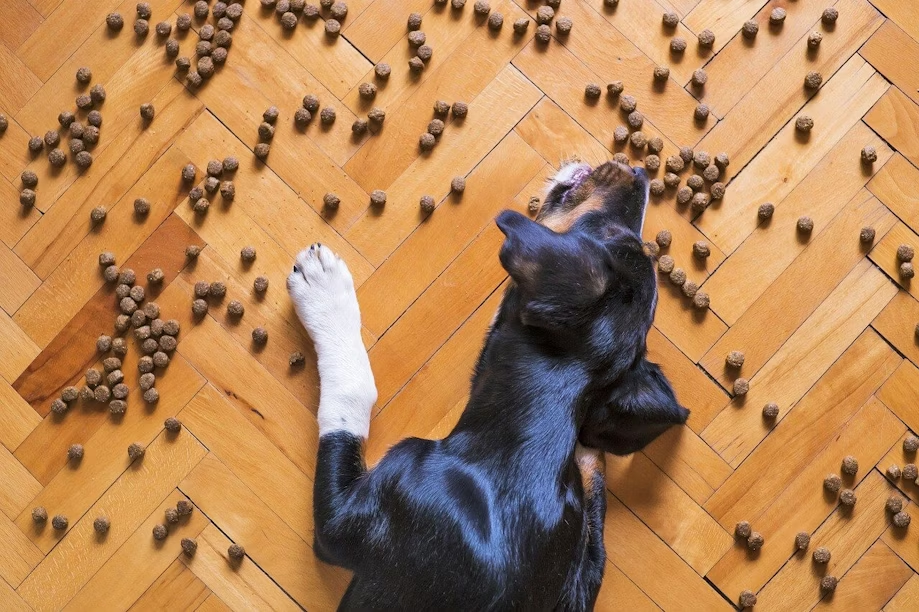
What to do if your dog is obsessed with food
For dogs that are food fanatics, weight management is critical. After all, overeating can lead to obesity, and obesity puts your pup at risk for several health conditions.
You can help your dog stay at a healthy weight by measuring out appropriate portions for scheduled meals. (Avoid free feeding.) If your dog doesn’t take well to eating only once or twice per day, try dishing out smaller meals more frequently.
And don’t forget exercise—your dog might need up to two hours of activity every day, depending on their age and breed mix. Visit our breed library to get exercise recommendations for your pup based on their ancestry.
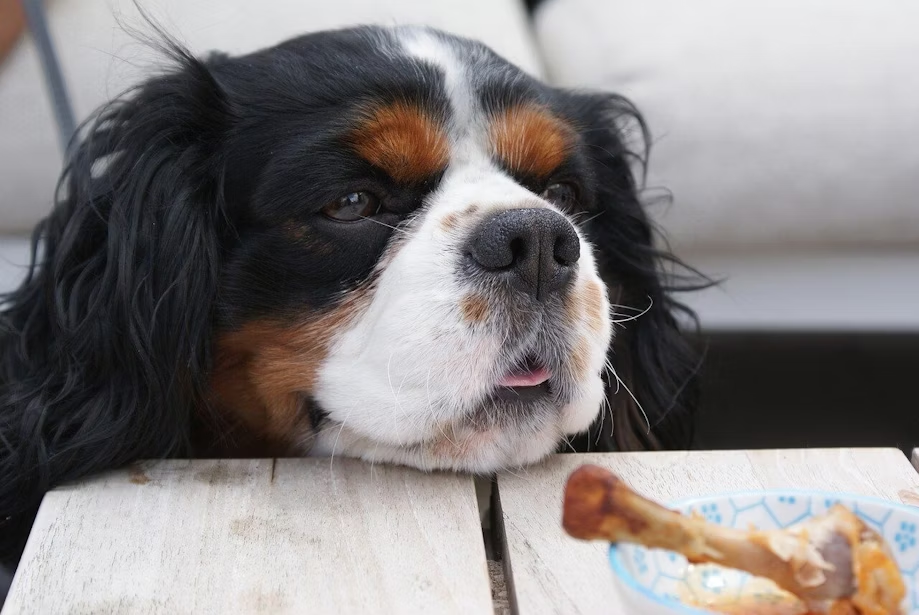
Did you know? If your dog is food-motivated, they’re likely also very easy to train. Just remember to take it easy on the treats. They should make up no more than 10% of your pup’s daily calories.
If you’re concerned about your dog’s appetite, consult your veterinarian. They’ll be able to help identify the reasons for any sudden changes and advise on dietary and exercise needs.
Test your pup for the POMC gene mutation.
To help you plan for your dog’s unique health needs, the Wisdom Panel™ Premium DNA test screens for the POMC mutation—along with hundreds of other genetic conditions.
See Health Tests